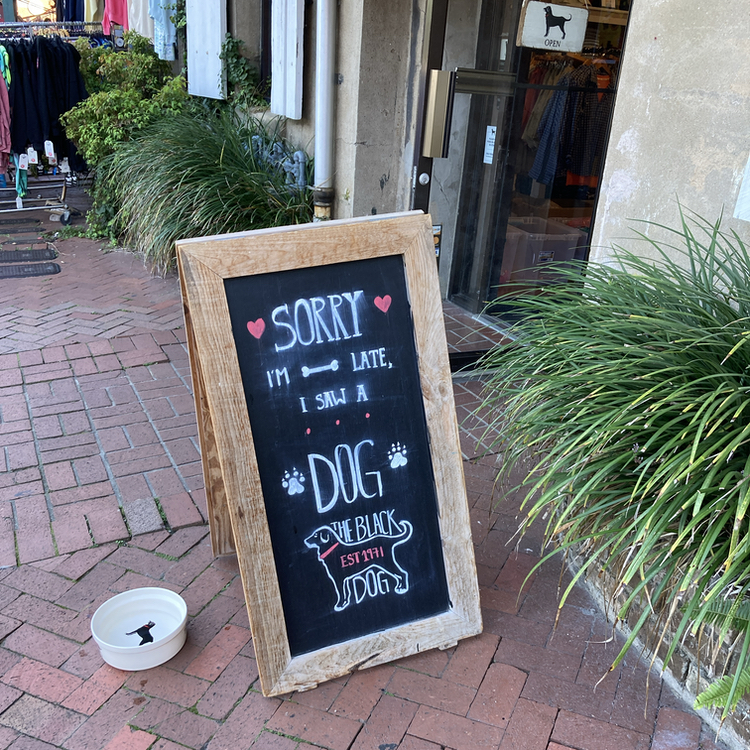Is playfulness the font of humor and creativity?
I was recently thinking about humor, and how we intermingle (if you’ll pardon my presuming to know you) two different things when we use the word humor. We say both: One has a good sense of humor, and one is of good humor. That first refers to the person who can make others laugh, while the second is the person who generally approaches things positively.
Humor, we said, exhibits itself in a number of typical habits. Can we cultivate these? In the first place there is the habit of being playful. If we vaguely suspect that we have not a noticeable degree of humor, we might ask ourselves: Are we ever playful with serious things; or is it our habit always to take serious things — our work, our soul’s salvation, the salvation of our neighbors or the world — with prodigious solemnity?
~ Brett McKay, from Why We Value a Sense of Humor (And Distrust People Who Take Themselves Too Seriously)
But I believe those two meanings of humor are deeply intertwined. In fact, I think it’s just different manifestations of humor. I see humor as a fundamental character trait.
Engaged in the creative process we feel more alive than ever, because we are making something and not merely consuming, masters of the small reality we create. In doing this work, we are in fact creating ourselves.
~ Robert Greene
Which brings me to a humorous point—not funny, and not the humerus one that makes up your elbow, but a point about play: It’s the capacity for play that gives rise to humor. And people who can’t play? They’re missing that capacity—and so, they miss the humor.
Anticipate surprise. Expect that as you move and learn, there will be many lessons you couldn’t have planned for, could never have seen coming. A choice or habit that made sense a few miles back may no longer serve you. Don’t engage in hindsight; do be ready to relinquish old truths and accept new ones.
~ Mandy Brown, from Make life possible
“What’s the point of this?” some say, upon seeing adults playing. Perhaps you’ve even pushed back against their assessment of your own play. But could you (did you) explain the point of the play? Or of play in general?
Am I going somewhere with all this? Probably not. I’m really just playing with words and ideas.
The creative mind gets poisoned with the idea that your great work will be the result of getting serious. So many of my good ideas come from what looks like goofing off, wasting time. Art is play. There’s no way to tell what’s deep or shallow until you play with the idea.
~ Austin Kleon
That insight from Kleon has been a mind virus for me. I spent most of my life thinking I needed to get serious. Be serious. Shape it up, get straight. Go forward, move ahead. Try to detect it, it’s not too late…
While really, when the working day is done, I just wanna have fun.
These patterns of rest and creation have led me to something I call the Noetic Spiral – from the Greek ‘noesis’ meaning deep understanding or pure thought. Picture a spiral: unlike a circle that simply returns to its starting point, a spiral moves both around and upward. Each turn builds on what came before while creating something new. We see this pattern everywhere in nature – in shells, in galaxies, in the unfurling of ferns. It’s how nature achieves growth while maintaining connection with its origins.
~ Zoe Scaman, from The Noetic Spiral
It’s all fun and games until someone whips out Greek. But ‘Noetic Spiral’ is incandescent.
“Each turn builds on what came before while creating something new” is so full of play—so humorous—that I’m quoting it twice. That phrase is like the DNA coding instructions for playing—it’s instructions for paizó, since we’re throwing Greek around. (Note that it is not okay to throw around the other plural, Greeks.)
The creation of something new is not accomplished by the intellect but by the play instinct acting from inner necessity. The creative mind plays with the objects it loves.
~ Carl Jung
This risks veering into talking about writing and acting, but…
Son: “Mom said when she was 14, she was the prettiest girl in class.”
Mike: “Well, I was there when she was 14, and let me tell you something. She lied.”
Mom: “Don’t listen to your Uncle Mike. He was blind from touching himself inappropriately.”
I hope you see how funny that could be if played well. There’s the repartee of siblings who have a healthy-enough relationship—and enough perspective—to laugh about their adolescent challenges. There’s the playful hinting at adult themes to a child just old enough to be slightly shocked, but better for it. But why is it funny?
[I]t is quite often that there is something about a story that I connect to and that makes me want to continue that heavy lifting. You know, each of my projects is kind of a marathon run. A lot of them won’t make it to the finish line and the only reason they make it is because I go back and nurture them and try to figure everything out.
~ Darren Aronofsky, from Darren Aronofsky
So why are Mike and his sister, above, funny? Perhaps it’s simply because as adults, they’re still being light-hearted and playful? In that exchange we see them playing.
Until next time, spiral Noetically!
ɕ
PS: The quoted dialog is from the movie, The Ugly Truth. It’s good, if you’re into silly, sophomoric romcoms. Any such movie that makes me laugh out loud clears that bar for me. Also, sophomoric is Greek in origin. The play continues!
